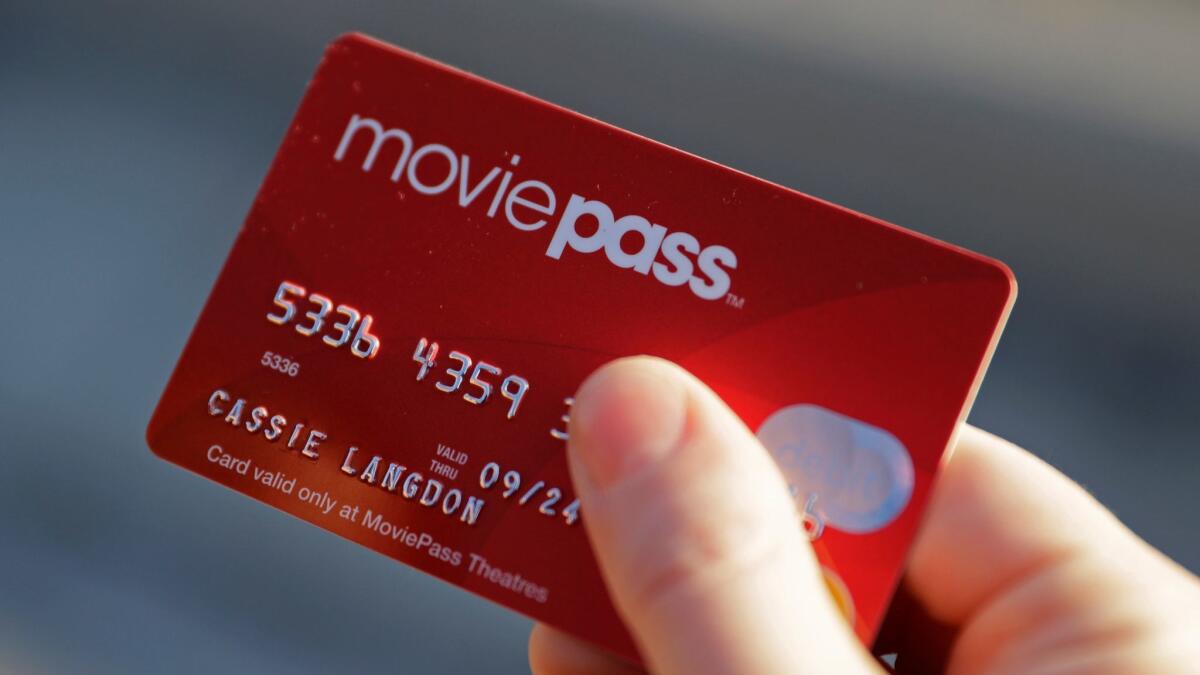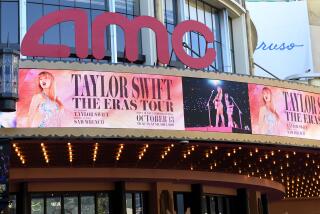MoviePass will limit customers to 3 movies a month but backpedals on raising prices

Movie ticket discount service MoviePass will now limit subscribers to three movies a month, rather than one movie a day, but it backpedaled on its plan to raise prices as it struggles to stay afloat.
The service said Monday that it will keep its monthly rate at $9.95, rather than raising prices to $14.95 a month, as it had previously planned to do. The changes to the subscription plan will go into effect Aug. 15.
MoviePass, which is owned by New York data firm Helios & Matheson Analytics Inc., said in a statement that only 15% of its subscribers had used the service to watch four or more movies a month, and that the new model will have “no impact whatsoever on over 85% of our subscribers.”
Mitch Lowe, MoviePass’ chief executive, said in a statement that the company had learned through months of research that subscribers valued a low monthly price “above nearly everything else.” The company was “well aware” that it has encountered “many challenges,” he said.
“However, any industrywide disruption like MoviePass requires a tremendous amount of testing, pivoting and learning,” he said. “We believe this new plan is a way for us to move forward with stability.”
After subscribing to the service, customers receive a red debit card in the mail. When near a theater, they use an app to select a showtime, and the company loads the full price of the ticket onto the card for the customer to swipe at the box office.
MoviePass bet on what many view as a wildly flawed business model: It pays theaters the full price for each ticket its customers buy, intending to make money by selling consumer data. But major theater chains criticized the plan, calling it unrealistic, and have refused to share lucrative concession revenue. And the goal of selling consumer data to major studios and distributors hasn’t panned out.
In late July, Helios & Matheson performed a reverse stock split, replacing every 250 shares with a single share in order to keep its share price above $1. Companies on the Nasdaq risk being delisted from the exchange if their stock trades below $1 for 30 days. The stock has since continued to plummet; on Friday, it closed at 7 cents a share. It ticked up Monday, closing at 8 cents.
Last week, the company announced that new, popular releases that come out in 1,000 or more locations would no longer be available on the MoviePass app during their first two weeks in theaters. That decision, as well as the previously announced price increase, were aimed at cutting the company’s cash-burn rate by 60%, MoviePass said at the time.
But in a seeming reversal, MoviePass said Monday that its new plan would now include “many major studio first-run films.” A company spokesman said “many” of those movies would be available in the first two weeks in theaters. However, he would not say whether that would include opening weekend.
Helios & Matheson CEO Ted Farnsworth said in a statement Monday that the company believes the new subscriber plan will “immediately reduce our burn.”
Times staff writer Ryan Faughnder contributed to this report.
Twitter: @smasunaga
UPDATES:
3:15 p.m.: This article was updated with Helios and Matheson Analytics shares’ closing price.
7:20 a.m.: This article was updated to include more details about MoviePass’ new subscriber plan and background information about the company’s finances.
This article was originally published at 6:45 a.m.







